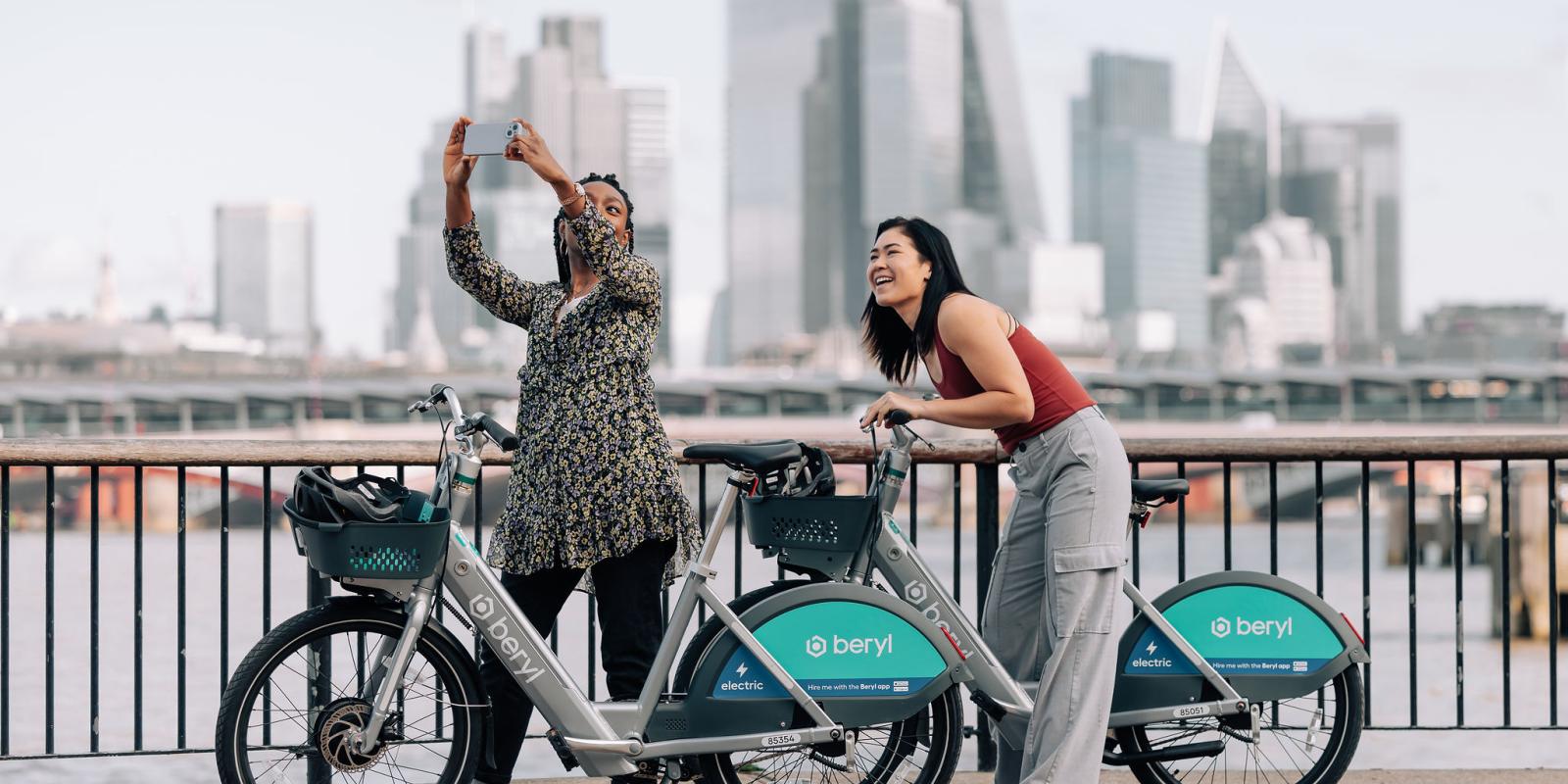The report is more than four times the size of last year's, collating responses from across 16 different scheme areas. Data was taken from both riders and those that have signed up to Beryl but have not yet taken a ride.
The findings show the positive impact that shared transport can have on wider transportation habits. Beryl vehicles are reducing reliance on private car, van, taxi or motorbike trips, with 62% of respondents replacing them with a Beryl trip. This is a significant 6% increase on the previous year’s data. Reinforcing that, 34% of riders have also reported less frequent private car use this year.
Beryl is getting people cycling more often and encouraging even the most lapsed cyclists to get back in the saddle. Of the 43% of riders that either first started cycling or resumed regular cycling after a break when they started using Beryl, 19% had resumed following a break of five years or longer.
The primary use of Beryl vehicles has shifted from leisure to commuting, with 34% of riders stating it as their primary purpose. However, of those that had commuted with Beryl, 63% had done so between 1-3 days per week. This suggests that it's common for riders to use Beryl to supplement other commuting methods.
Electric vehicles have increased in popularity this year, with 75% of all riders having used an e-bike in the last six months. This makes it the preferred mode by some distance.
Beryl CEO and co-founder, Phil Ellis, said: "It’s been another year of progress and expansion for Beryl, with our hard work, experience and innovation enabling us to thrive and grow as the UK’s leading micromobility operator.
"It's great that the report can demonstrate the impact we are having on people's wider transport habits. Not only are we encouraging people out of high emission private vehicles, we are also getting lapsed cyclists back in the saddle, which is great news. Achieving this can only have positive effects on traffic congestion and carbon emission levels as well as riders’ mental and physical health.
"It's great to see the increasing popularity of the e-bike and I'm excited to see the impact that our brand new innovative and lightweight BBE2 e-bike will have this coming year.
"Our focus has always been and will continue to be on ensuring schemes are as integrated, convenient and easy to use as possible. We achieve that by listening to feedback and using it to drive improvement and progress. I promise you that we will continue to adopt this approach for a successful 2025 and beyond."
Other key findings include the impact that the cost of living continues to have on riders' transport choices. Almost one third of all riders and non-riders (30%) said that cost-effectiveness compared to other transport was a reason for signing-up to Beryl. This is a 3% increase on last year, making it the third most popular reason and suggesting Beryl still offers value compared to other transport options. This is especially true in comparison to private vehicles, which require fuel, tax, MOT, storage, insurance and maintenance costs.
However, cost is also a barrier to cycling ‘more often’ for 41% of riders and ‘taking a first ride’ for 29% of non-riders, making it the second most common and most common barrier respectively.
The full report is available here: https://bit.ly/4a4rD3I
"It's great that the report can demonstrate the impact we are having on people's wider transport habits. Not only are we encouraging people out of high emission private vehicles, we are also getting lapsed cyclists back in the saddle, which is great news."
